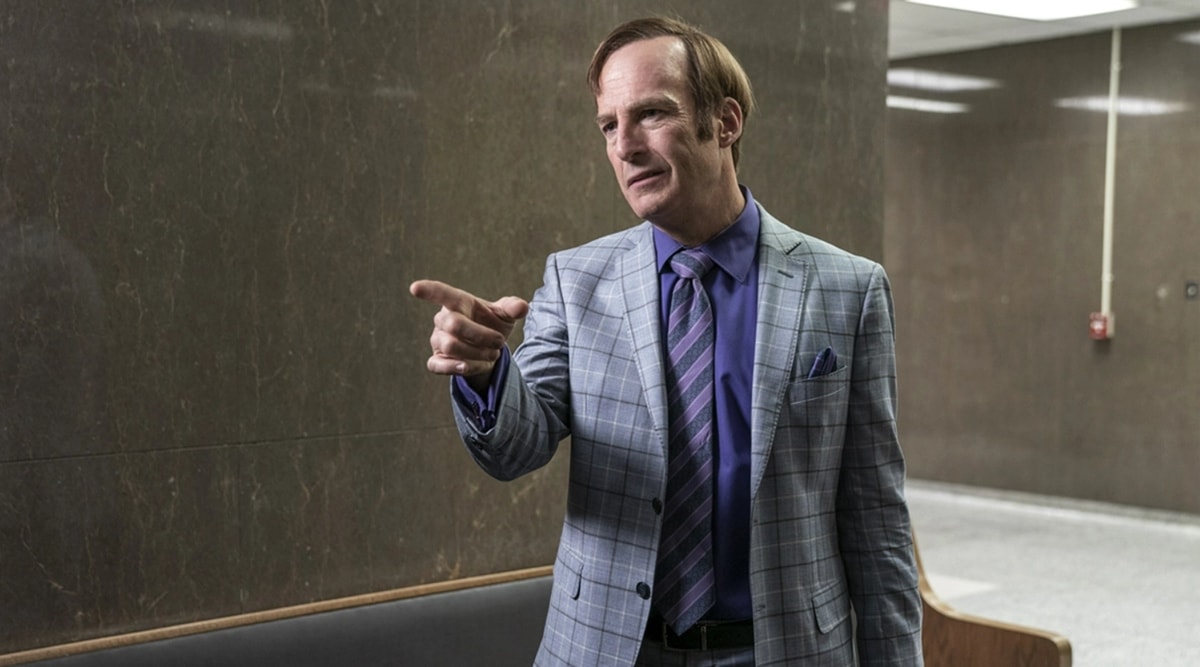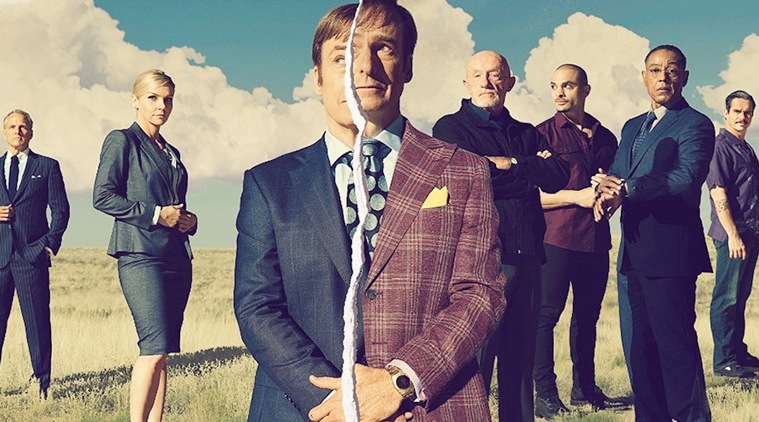 Bob Odenkirk plays a lawyer in Better Call Saul. (Photo: AMC)
Bob Odenkirk plays a lawyer in Better Call Saul. (Photo: AMC)For his final run starring in Better Call Saul, AMC’s critically adored Breaking Bad prequel, Emmy voters gave Bob Odenkirk an impressive parting gift — his fifth lead actor nomination in the show’s six seasons. Saul, which will conclude on Aug. 15 (it returned earlier this week after a break), earned seven nominations in total, including for best drama series and, for Odenkirk’s co-star, Rhea Seehorn, supporting actress in a drama series.
In a phone interview on Tuesday, Odenkirk discussed how the ethically challenged lawyer he portrays has evolved over the seasons, what’s in store for the series finale and whether Saul is better than Breaking Bad. These are edited excerpts for the conversation.
Q: Congratulations! How are you doing?
A: I’m doing [expletive] great. I really am. I’m very happy, very surprised.
Subscriber Only Stories
Q: What went through your head when you heard the news?
A: You have to take into account what went through my head in the weeks before, which is we’ve been off the air for so long due to COVID and my heart attack. Additionally, I think in some people’s minds, the show is an extension of Breaking Bad, so it feels like it’s been on the air for 15 years. With so many wonderful new shows, I thought there was a good shot we’d be overlooked. So I’m so thankful people noticed that we’re back on the air and that they seem to be saying the show is as good as it has been in the past. And obviously that Rhea got nominated. I’ve been thankful for every nomination I’ve got, but it’s been hard to think that the person I’m mostly acting with in these really challenging scenes is not being noticed, or not being recognized. It’s just so much better to get to share this with her.
Q: It’s your fifth time being nominated for Saul. Has that settled in yet?
A: I never took it for granted. It was always a surprise. Certainly the first two years, I couldn’t believe it. But I think this means more. I have a richer appreciation for the people, the level of quality that the writers have brought and the show has kept up. All the actors and all the talent. It means a lot to me because we came out of Breaking Bad, one of the great series of all time, and it’s always been my goal to not drop the ball and to keep up the level of standards.
Q: The final season of the show returned this week. Is it strange to be celebrating while the show is on the air?
A: Not at all. In fact, it feels more right. It’s better than feeling like, Oh, it’s done. That was what it was. It feels like there’s so much good stuff coming. It makes me feel like we’re earning it for the next month. Next week’s episode is going to be a celebration of this.
Q: Before Saul, you were best known as a comedic actor. Now you’re famous for this dramatic role. What has the show done for your career?
A: The show has challenged me like nothing else in my life, certainly professionally. And it’s shown me the rewards of acting, and of challenging acting. Acting for me is rewarding when it’s hard, when you really have to push yourself and dig deep and lose yourself in the role. That’s when you feel like you’ve done something meaningful. So I want to keep in touch with that. I’d also like to do some fun comedy again, but not solely. I definitely want to keep working in the arena that I’m in and that put me here.
 Better Call Saul finale season premiered on July 11. (Photo: AMC)
Better Call Saul finale season premiered on July 11. (Photo: AMC) Q: When you first considered the show, did thinking of yourself as a leading man come naturally?
A: You know, I tried not to think about it too much. I sort of treated it like every other role but with more lines. And I had a lot more lines than in anything I’d ever done. But it was just a sort of compartmentalization mechanism to try to carry on doing it and not really take that in. It wasn’t until the billboards went up after the first season that it really hit me that I’m the lead in this fairly big show. And that’s when I started to sweat.
Q: This season, we’re seeing the last stages of Jimmy’s transformation into Saul. What did you see in the character or try to bring to the character that wasn’t there in previous seasons?
A: One thing [the creators of Better Call Saul] Vince Gilligan and Peter Gould have shown us is that everything’s personal. In the end, the thing that makes you choose what you’ll do, where you’ll go, who you’ll be, is very deeply, deeply personal. It’s not a plan you can make. You follow your instincts and hurt feelings as you choose your path forward.
I’ve always felt that Jimmy had a very high emotional intelligence, but he didn’t get to apply that to himself. Who am I and what am I doing and why have I done what I’ve done? I feel like he’s always hidden and run from that kind of thinking. I think my favorite thing about this season is that they grant him the opportunity to do that. In the finale, without getting into it at all specifically, he does get that self awareness and I really appreciate that. Playing him was hard at times because of the way he refused to examine his own choices.
Q: How are you feeling about saying goodbye to the show at this point?
A: I’ll be able to answer that question after I see the season finale. I think I need to see that story come to some conclusion. Obviously, I know what happens. But I’ve been living with this guy for 12 years; I’ve been coming to and from Albuquerque playing Saul Goodman for 12 years. So it’s just not real in my head yet that I’m walking away from him.
Q: The show has notably grown in estimation over the years, to the point that some now debate whether Saul is actually better than Breaking Bad. Where do you come down on that question?
A: I think Breaking Bad is a more universal kind of story. It’s a midlife crisis and the dangers are more striking — there’s more guns flying around and the main character is interacting with drug dealers almost immediately. That’s just not the case in our show. Our show is more internal. It’s an odder journey. It includes a lot of the ins-and-outs of being a lawyer. It’s just going to be less relatable because of the subject matter. But, in a beautiful stroke of hard work and genius, the writers have figured out ways to get people to understand some of the tensions and pressures these characters face and relate that to their own personal journeys.
The beautiful thing is that Vince Gilligan and the writing crew from Breaking Bad showed an audience the value of watching something closely. And then they took that audience and they took that investment and they said, “Now we’re going to make a show that you have to watch very closely.” You couldn’t do that if you didn’t first make Breaking Bad. A show like ours wouldn’t have been able to exist.
- The Indian Express website has been rated GREEN for its credibility and trustworthiness by Newsguard, a global service that rates news sources for their journalistic standards.

